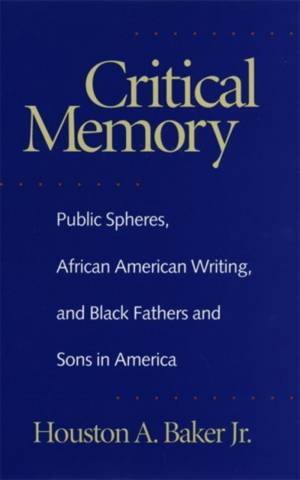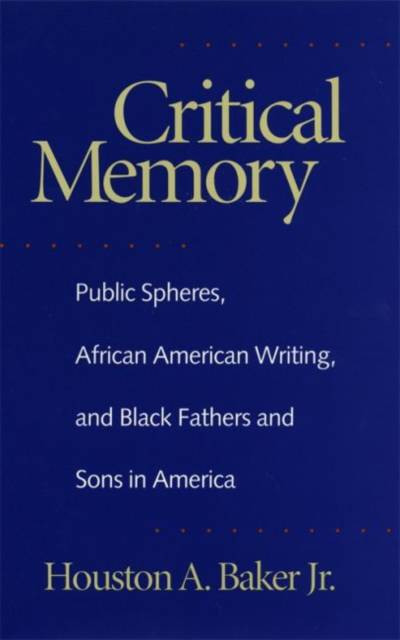
- Retrait gratuit dans votre magasin Club
- 7.000.000 titres dans notre catalogue
- Payer en toute sécurité
- Toujours un magasin près de chez vous
- Retrait gratuit dans votre magasin Club
- 7.000.0000 titres dans notre catalogue
- Payer en toute sécurité
- Toujours un magasin près de chez vous
Critical Memory
Public Spheres, African American Writing, and Black Fathers and Sons in America
Houston a Baker
70,45 €
+ 140 points
Description
From the lone outcry of Richard Wright's Black Boy to the chorusing voices of Louis Farrakhan's Million Man March, Critical Memory looks across the past half century to assess the current challenges to African American cultural and intellectual life. As Houston A. Baker recalls his own youth in Louisville, Kentucky, and Washington, D.C., he situates such figures as Ralph Ellison, James Baldwin, Shelby Steele, O. J. Simpson, Chris Rock, and Jesse Jackson within such issues as the embattled state of African American manhood and the "financing and promotion of black intellectuals."
The "memory" of the book's title is doubly "critical." It is imperative, Baker says, that we keep alive the "embarrassing, macabre, and always bizarre" memory of race in America. In another respect, the remembering must be pointed and keen enough to discern truth from its often highly politicized, commercialized trappings. Throughout the book, Baker returns again and again to the triad of race, "likability" (the compromises by which one gains credibility in white America), and "clearance" (the separation of blacks from the "rights, spaces, and privileges of American citizenship"). These concepts, Baker argues, gird the meritocracy, still in force, that claimed progress in granting black men like his father the freedom to work themselves to death behind a desk instead of a mule. In Critical Memory reason and cool rage converge to expose the draining tasks of reconciling white America's perception of its righteousness with its lack of relish for the truth it claims to welcome from black intellectuals and artists.Spécifications
Parties prenantes
- Auteur(s) :
- Editeur:
Contenu
- Nombre de pages :
- 96
- Langue:
- Anglais
- Collection :
Caractéristiques
- EAN:
- 9780820322407
- Date de parution :
- 19-03-01
- Format:
- Livre relié
- Format numérique:
- Genaaid
- Dimensions :
- 134 mm x 225 mm
- Poids :
- 240 g

Les avis
Nous publions uniquement les avis qui respectent les conditions requises. Consultez nos conditions pour les avis.






